Okeanos was named one of Fast Company’s 2022 World Changing Ideas!
+
|
|
|||
|
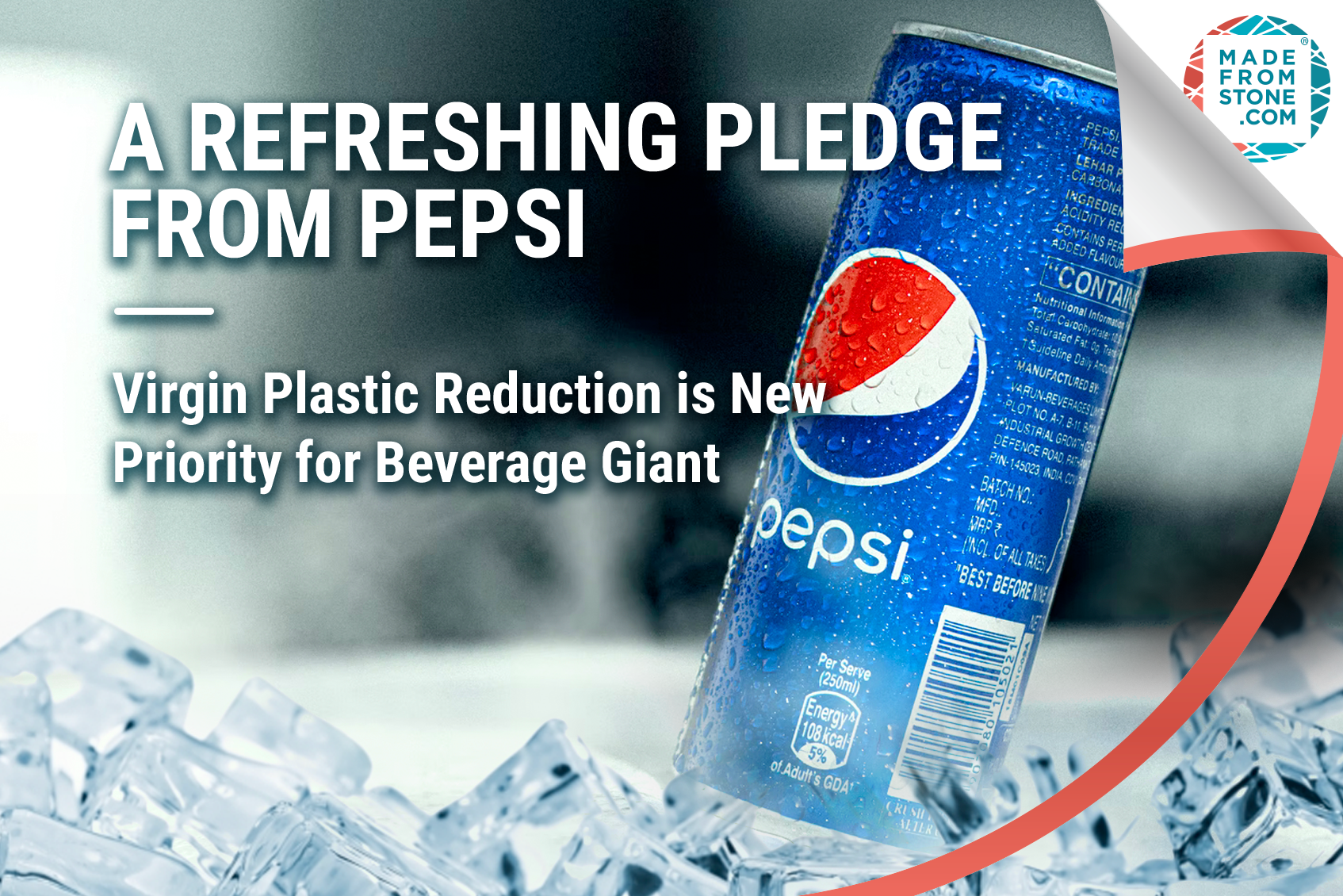
Global beverage and snack food giant PepsiCo Inc. recently announced a plan to reduce the amount of virgin plastic used in their bottles by 50%. Virgin plastic, which is defined as new oil-based resin created without the use of any recycled materials, is the main culprit for plastic pollution. New virgin plastic has a huge carbon footprint and has no defined end-of-life solution, resulting in the majority of virgin plastic waste being landfilled or incinerated. In 2019, 368 Million tons of virgin plastic was produced.
The largest proportion of plastic waste comes from packaging materials, which represent 47% of all waste worldwide. In fact, PepsiCo is one of four companies included in a report by NGO Tearfund, alongside Coca-Cola, Unilever, and Nestlé, who were responsible for more than half a million tonnes of plastic pollution in six developing countries each year – enough to cover 83 football pitches every day.
In recent years, a push to substitute virgin plastic with alternative materials like post-consumer-recycled (PCR) plastic has picked up steam. However, the integration of PCR materials comes with it’s own challenges, specifically difficulty maintaining product performance. On the legislative front, politicians in countries around the world are also proposing taxes on virgin plastic to discourage it’s use.
Fortunately, Okeanos’ signature Made From Stone technology makes it possible for brands like Pepsi to accomplish their virgin plastic reduction goals immediately; way ahead of their 2030 reduction targets, by replacing virgin plastic not with another type of plastic, but with calcium carbonate – a natural, abundant, renewable material that will reduce the item’s plastic and carbon footprint.
To learn more about making the switch to stone, contact
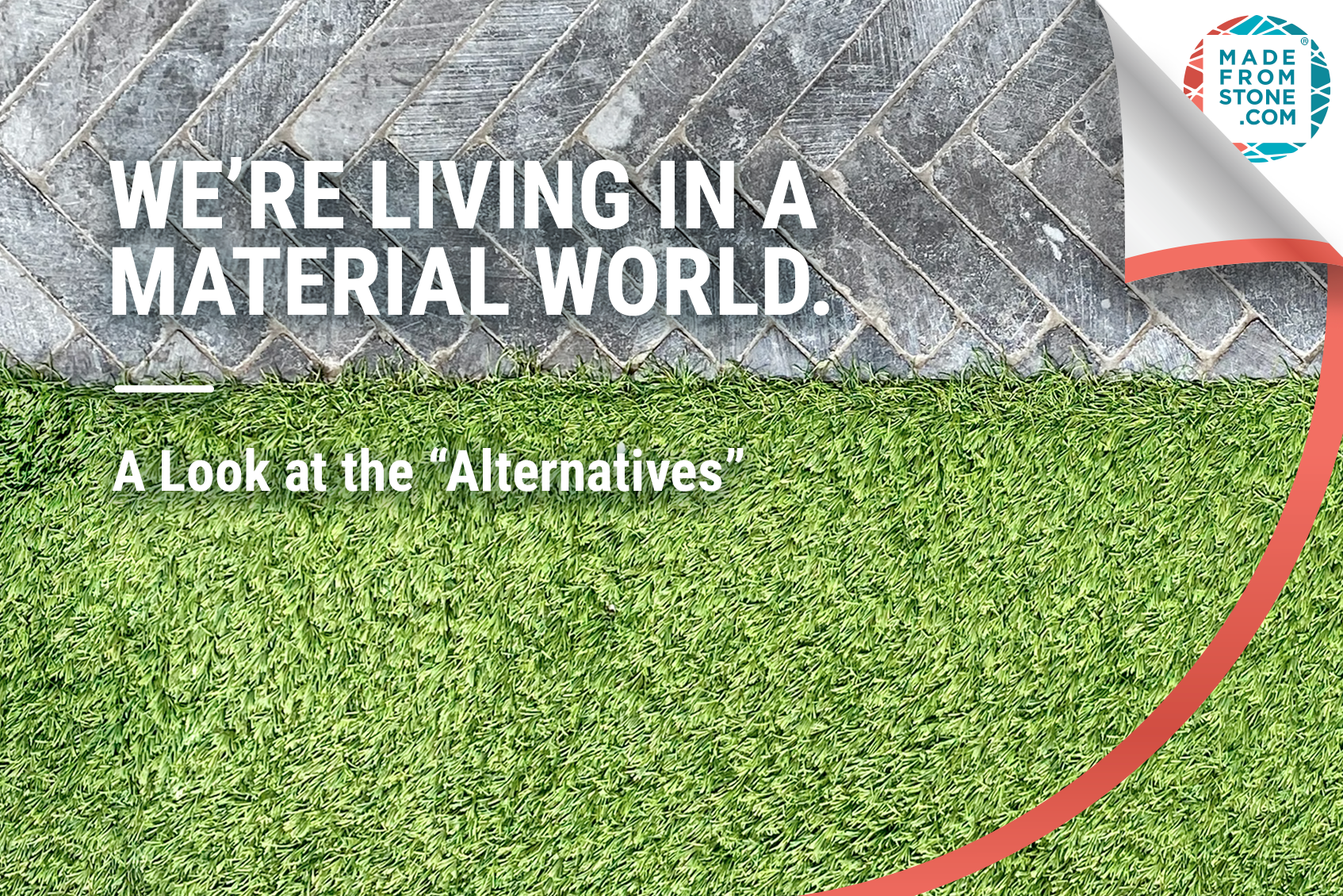
Existing alternatives don’t rock. Here’s why:
Virgin Plastic: Virgin plastic pollutes the environment, isn’t recycled in meaningful amounts, and has no end-of-life solution. These products are landfilled and chemically leach into groundwater sources and pollute our bodies of water. The manufacturing process produces significant carbon emissions.
Paper, aluminum or glass: while not contributing to plastic pollution, also have enormous carbon footprints of their own, cutting down trees to make paper, refining bauxite for aluminum, and the weight of glass contributes to significant transportation emissions.
Bio-plastics: do not introduce plastic into the environment, but their limited production capacity, high price-point, and inability to scale have left us still seeking a solution.
Now, let’s look at our mighty mineral, calcium carbonate. Did you know it makes up 4% of the earth’s crust? It’s the building block of seashells like the nautilus shell that inspired our signature coral swirl, and the main component of eggshells, marble, limestone, and chalk.
Naturally abundant, the earth has more calcium carbonate than we could possibly use. In it’s natural form, has a low carbon footprint, and has even been credited with the sequestration carbon over thousands of years.
Known for it’s strength, calcium carbonate possesses many desirable qualities. Better still, it’s been deemed food safe by the FDA – in fact, if you’ve ever taken an antacid, you’ve already eaten it!
The calcium carbonate used as the bedrock of our Made From Stone technology is sustainably sourced by our stone-partner OMYA, from 180 countries around the world. We think that rocks!
To learn more about calcium carbonate, click HERE.
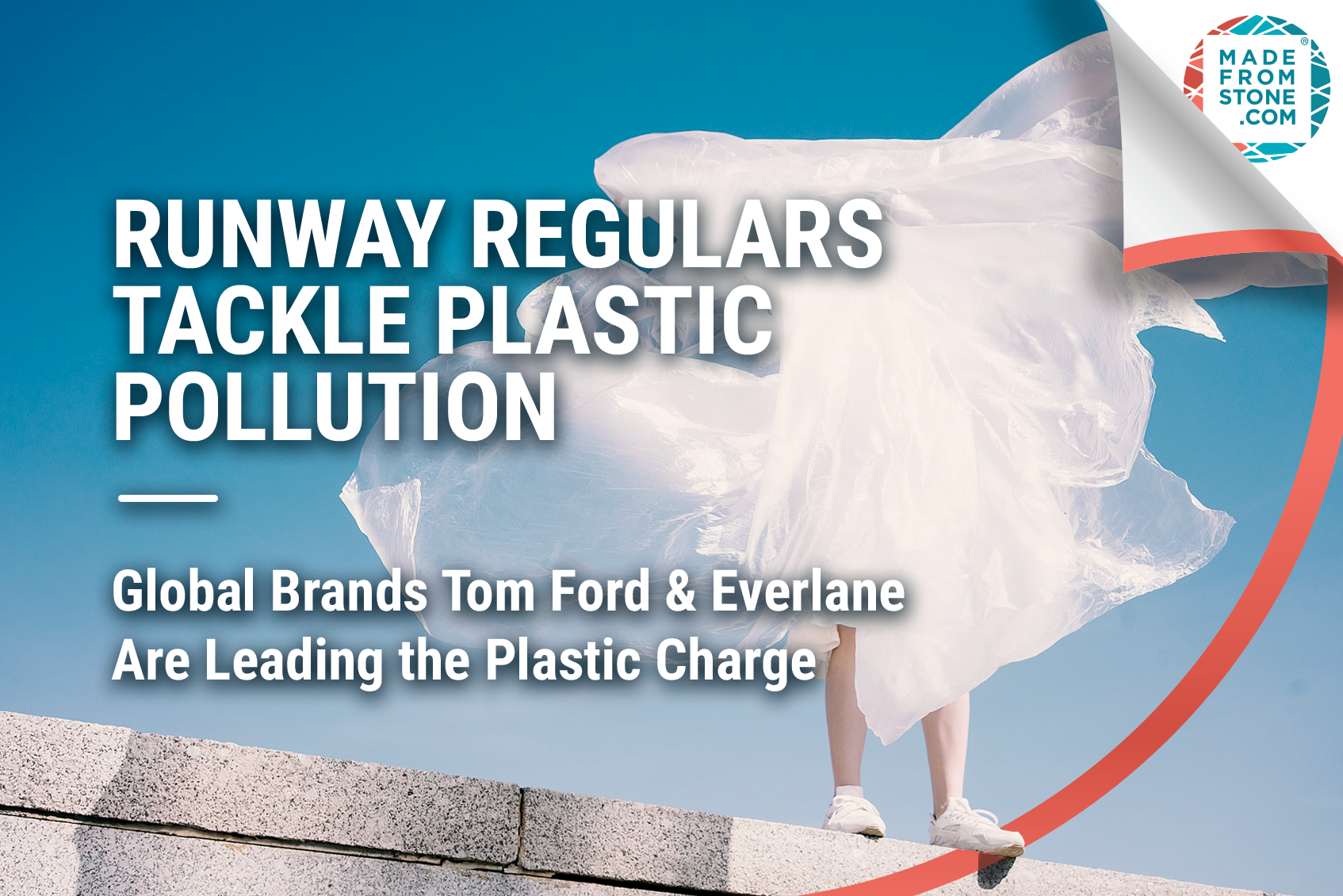
On the heels of another heralded show at New York Fashion Week, celebrated designer Tom Ford, has committed to taking his brand from the red carpet to the recycling center, partnering with marine advocacy organization Lonely Whale, to launch The Plastics Prize, a competition aimed at solutions for polybags, a packaging category that is pervasive in the global fashion industry, and most often not recycled. Humans are estimated to use over 300 billion polybags and single-use, resealable sandwich and storage bags every year. The Tom Ford team, alongside a panel of expert judges will select the top-ten technologies that meet their criteria to participate in an extended incubator program with the intention to adopt the winning solution through out the fashion industry.
In the case of Everlane, fast-fashion is affordable, convenient, and always trendy, though your chic “fit” often comes with a hefty price tag for the environment. However, Everlane has made admirable strides toward accomplishing their sustainability goals, removing 90% of virgin plastics from it’s supply chain, and incorporating more than 1 million pounds of post-consumer-recycled material into it’s products since 2018. Now, they’re committed to tackling that final 10% with the launch of “Next Collective,” a fellowship program targeted at tackling the fashion industry’s reliance on virgin plastic.
Okeanos plans to participate in these competitions with the goal of raising awareness for our technology, and introducing some of the world‘s biggest players to the fashion-forward possibilities that exist with Made From Stone.
Click to learn more about The Plastics Prize and the Next Collective.
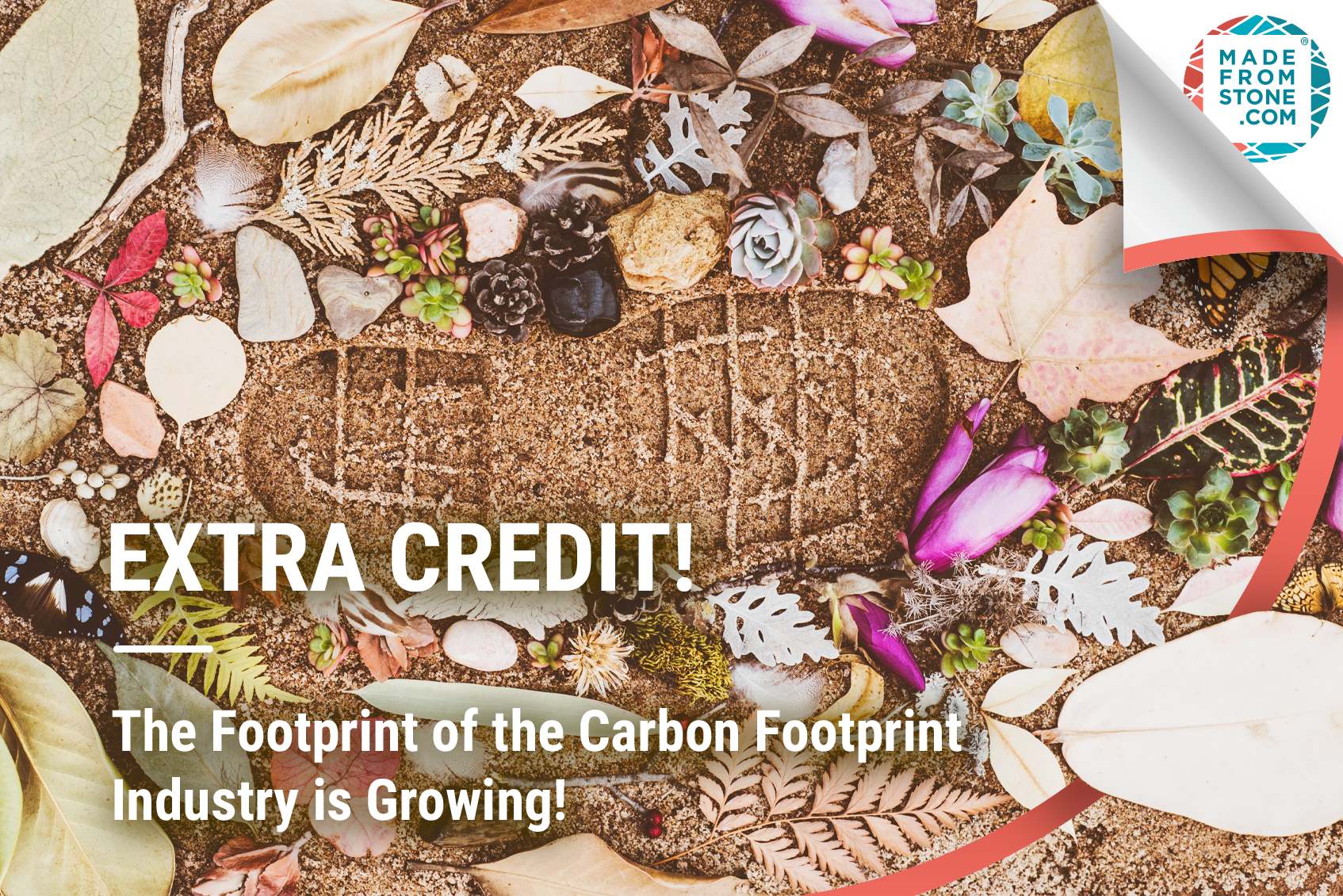
As more companies set ambitious carbon reduction targets, and countries around the world begin to crack down on carbon emissions, a new industry of consultancies specializing in vertical integration, management, and messaging surrounding “carbon footprints” is emerging.
The market, which also includes carbon standards organizations, regulatory agencies, and carbon credit trading platforms, is expected to grow from a $9B industry to $12.2B by 2025 according to a study by Markets & Markets.
Here at Okeanos, we find the explosion in this sector encouraging. As the effects of climate change make themselves more obvious, it’s a positive sign to see that countries and multi-national companies around the world are prioritizing the environment, and taking meaningful steps to set, and eventually hit their reduction targets.
To learn more about how Made From Stone can help you reduce your products’ carbon
footprint, contact trade@madefromstone.com
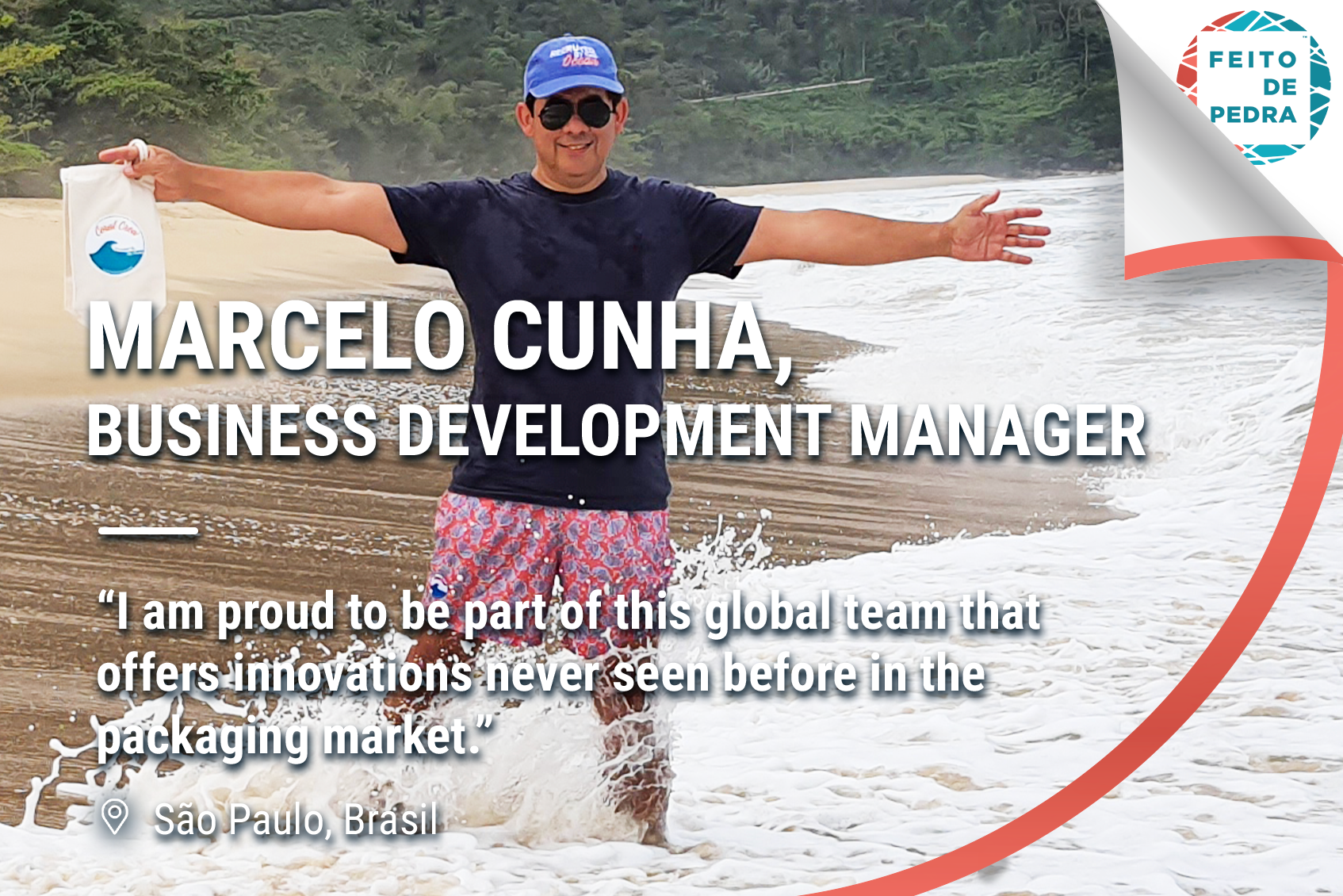
Rockstar Intro: Meet Marcelo Cunha, our extraordinary Business Development Manager who cultivates relationships at work, and fruit trees at home! Read on to learn about how working for Okeanos has inspired him to get back to nature.
Tell us about your childhood. Did you spend time by the ocean?
I was born in São Paulo, Capital – Brazil, and I was a child who really liked playing football and studying. At school I was always competing to get the best grades. I am the youngest of three children, and have a brother and a sister. I’ve never lived in seaside towns, but my parents took me to the beach throughout my childhood. I have very good memories playing in the sand and water on my father’s back and my mother’s lap.
Has working for an environmentally focused company impacted the choices you make in your daily life?
It certainly changed my way of thinking, choosing products and my behavior as a consumer as well. After 20 years working in the plastics commercial area, I started my work at Okeanos and was delighted when I understood the focus on the environment and today, I am proud to be part of this global team that offers innovations never seen before in the packaging market.
Tell us about the movement toward sustainability in Brazil. Are brands taking responsibility for the impact of their products?
Many companies have been looking for sustainable packaging here in Brazil, quite possibly because consumers are asking for it. There is a very strong trend in the search for companies that care about the environment and this movement ends up putting pressure on brand-owners to look for these solutions. But unfortunately, some of the big companies do not take responsibility for the impact of their packaging on the environment, even if on their website or on their social media there is what we can call greenwashing.
What is the top priority of the brands you work with every day? Recyclability? Compost-ability? Plastic use? CO2 footprint?
When I present Made From Stone™ solutions to the brand-owners and companies transforming packaging, I usually see their eyes light up when I talk about the majority substitution of plastic for CaCO3. The first reaction is always one of surprise, and then I usually hear questions about the carbon footprint and water footprint.
If you could pick a body of water anywhere in the world to spend time near, where would it be?
It would (definitely) be on the Phi Phi Islands in Thailand. Crystal clear waters with simply beautiful landscapes, lots of green landscapes and lots of blue water.
What new skill or hobby did you pick up during quarantine?
I have taken great care of an area of 2,000 square meters, including planting several fruit trees, in my summer house two hours from São Paulo Capital. I really enjoy planting trees and taking care of them seeing it grow and bear fruit.
Now that the world is preparing to re-open, what is the thing you’re most looking forward to?
It would be great if people had a collective mindset thinking about the next generations. Societies made up of people with an altruistic mindset are always best. It would be great if people had a collective mindset thinking about the next one. Societies made up of people with an altruistic mindset are always best. Another thinking: because of the pandemic situation, many adopted the policy of “close the pocket” in relation to consumption, and this is justified by the lack of confidence in the pace of economic recovery. Most people here in Brazil think that the country will only recover in 2022 or even in 2023 and, in this moment of hopelessness, the recurrent idea among Brazilians is the desire to live abroad if they can afford it. It would be great if situations like this could be reversed.
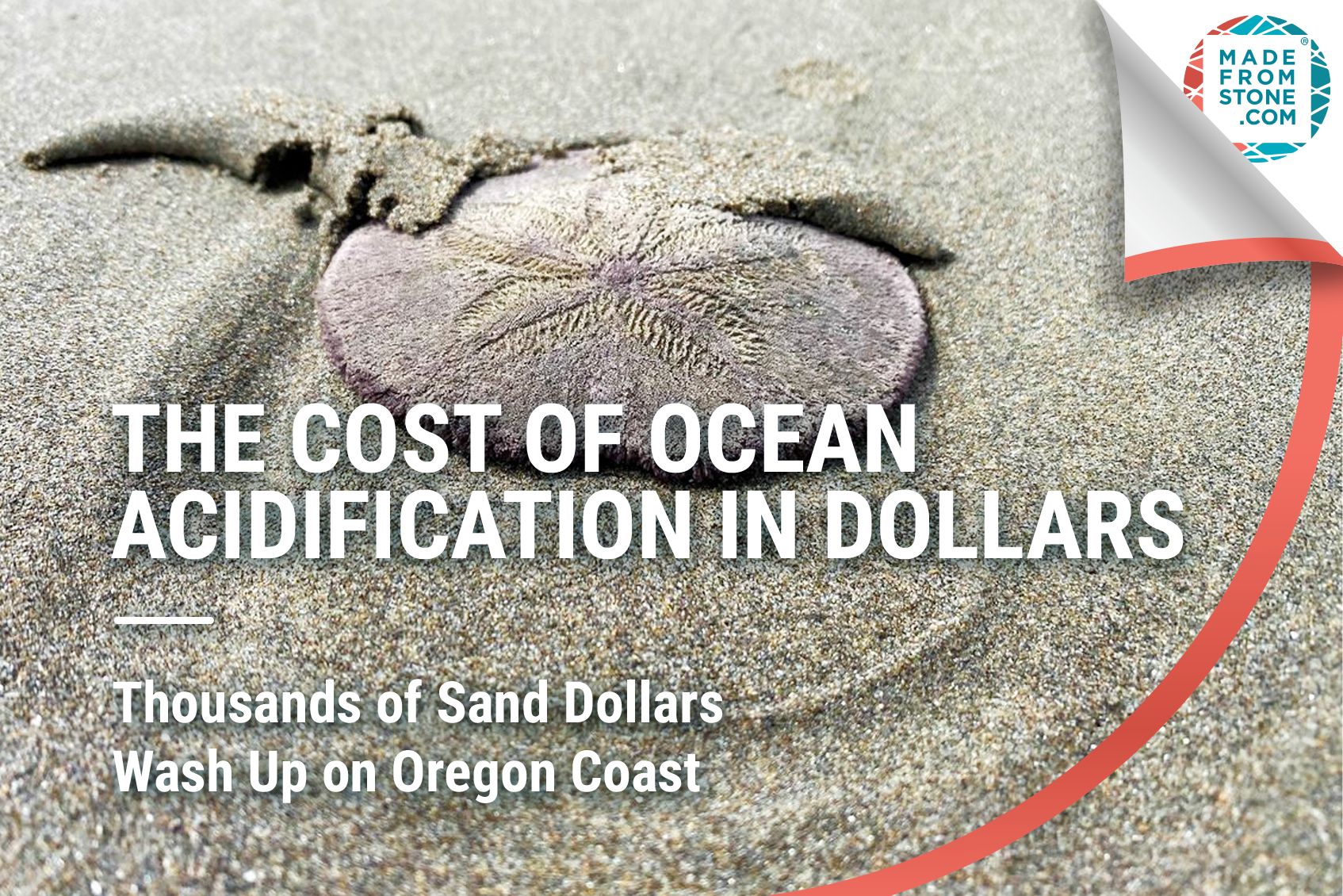
This August, thousands of mature dead sand dollars washed ashore in Oregon. Referred to as “flat sea urchins” by the Monterrey Bay Aquarium, sand dollars are invertebrates whose shells are comprised of calcium carbonate covered in millions of green and blue hair-like spines that help them move across the ocean floor. Once dead, the hairs called sillia lose their color, making the sand dollars white as you’ve come to recognize them.
Sand dollars, which typically live about ten years, play a vital role in the marine ecosystem, eating detritus and dead organic matter in the ocean.
In this instance, ocean acidification is thought to be a possible culprit for the die-off, with scientists attributing the mass die-off to an increase in CO2 in the water, which makes the ocean more acidic, decreasing the amount of calcium carbonate available for organisms who rely on it like sand dollars.
To learn more about the research being done to combat ocean acidification, visit our
Environmental Research page here.
News You Should Know:
| Cookie | Duration | Description |
|---|---|---|
| cookielawinfo-checkbox-analytics | 11 months | This cookie is set by GDPR Cookie Consent plugin. The cookie is used to store the user consent for the cookies in the category "Analytics". |
| cookielawinfo-checkbox-functional | 11 months | The cookie is set by GDPR cookie consent to record the user consent for the cookies in the category "Functional". |
| cookielawinfo-checkbox-necessary | 11 months | This cookie is set by GDPR Cookie Consent plugin. The cookies is used to store the user consent for the cookies in the category "Necessary". |
| cookielawinfo-checkbox-others | 11 months | This cookie is set by GDPR Cookie Consent plugin. The cookie is used to store the user consent for the cookies in the category "Other. |
| cookielawinfo-checkbox-performance | 11 months | This cookie is set by GDPR Cookie Consent plugin. The cookie is used to store the user consent for the cookies in the category "Performance". |
| viewed_cookie_policy | 11 months | The cookie is set by the GDPR Cookie Consent plugin and is used to store whether or not user has consented to the use of cookies. It does not store any personal data. |
